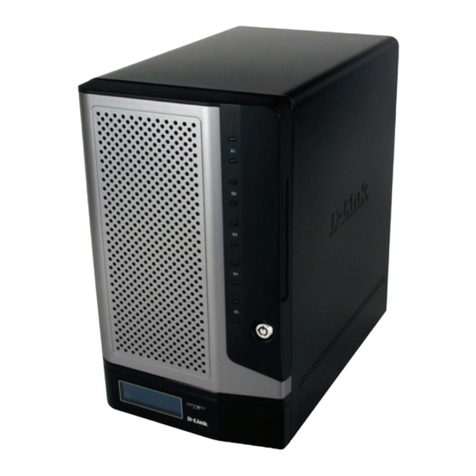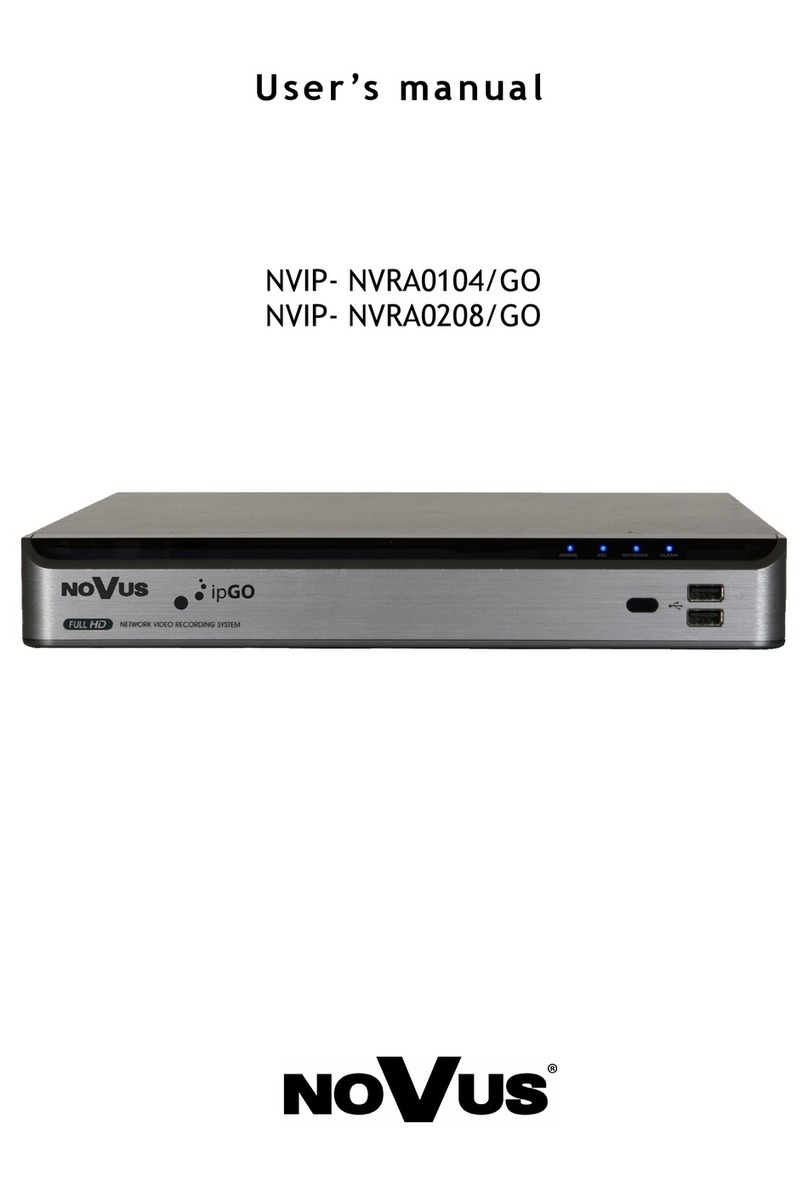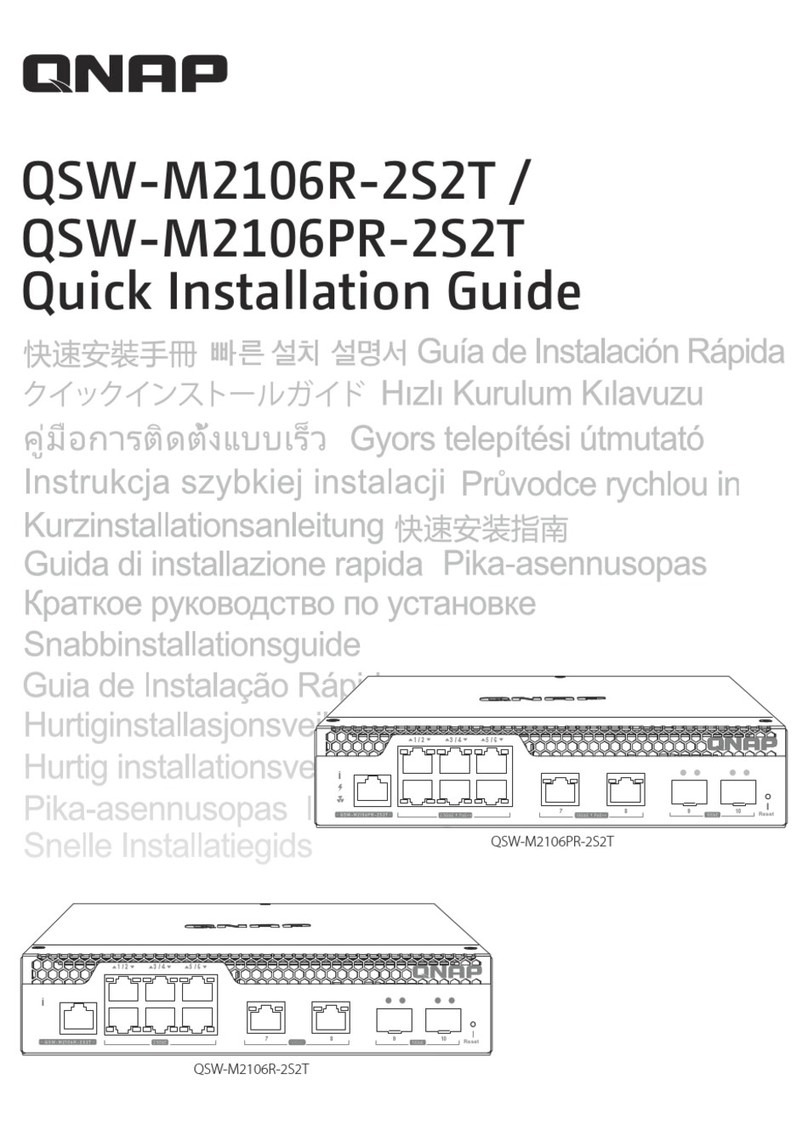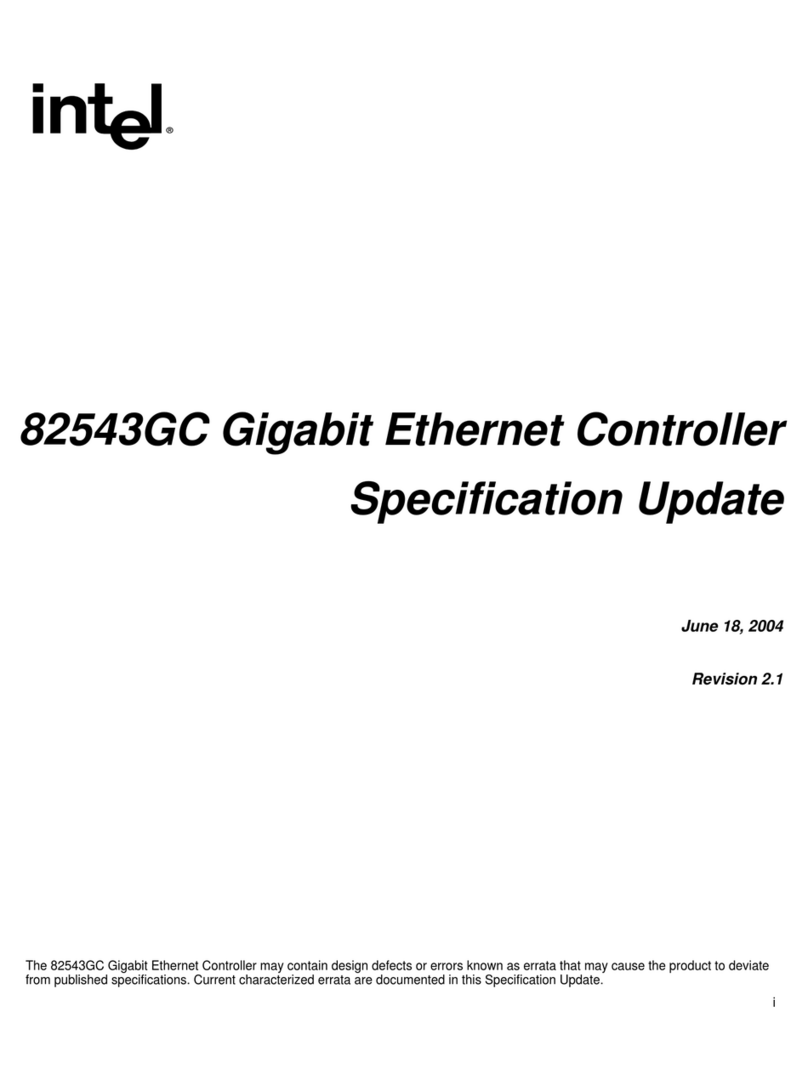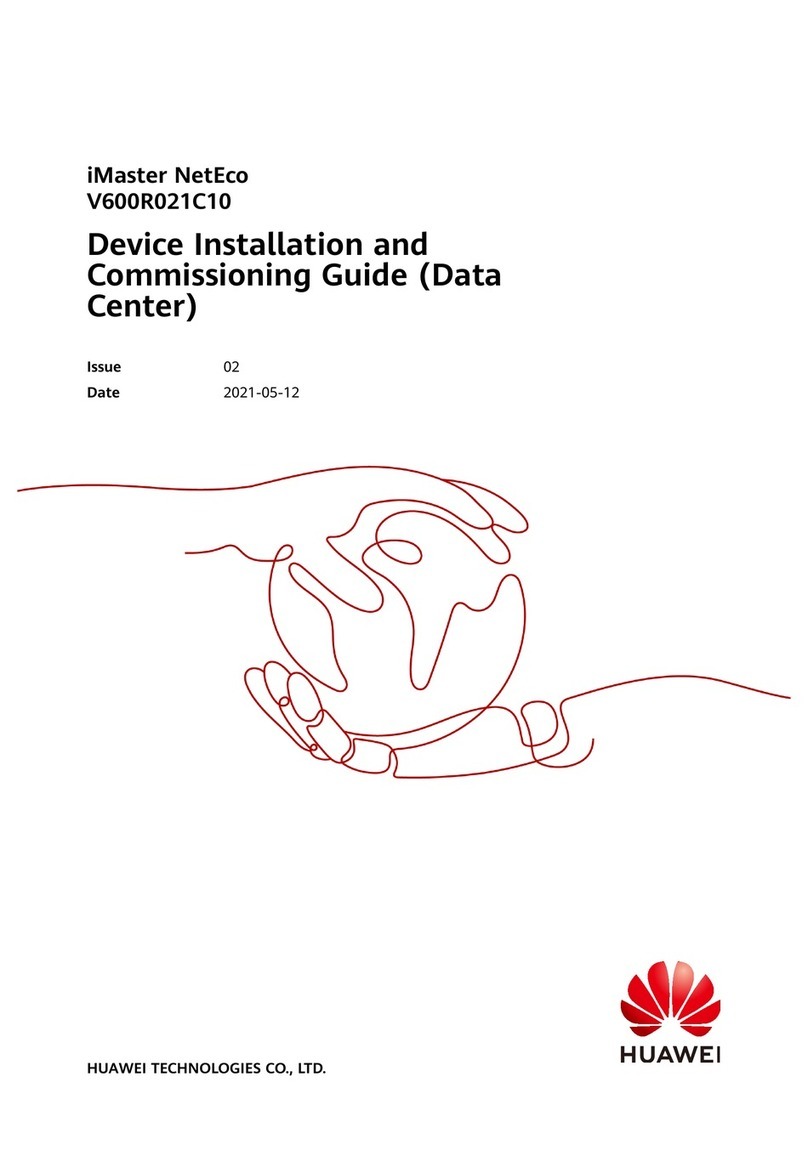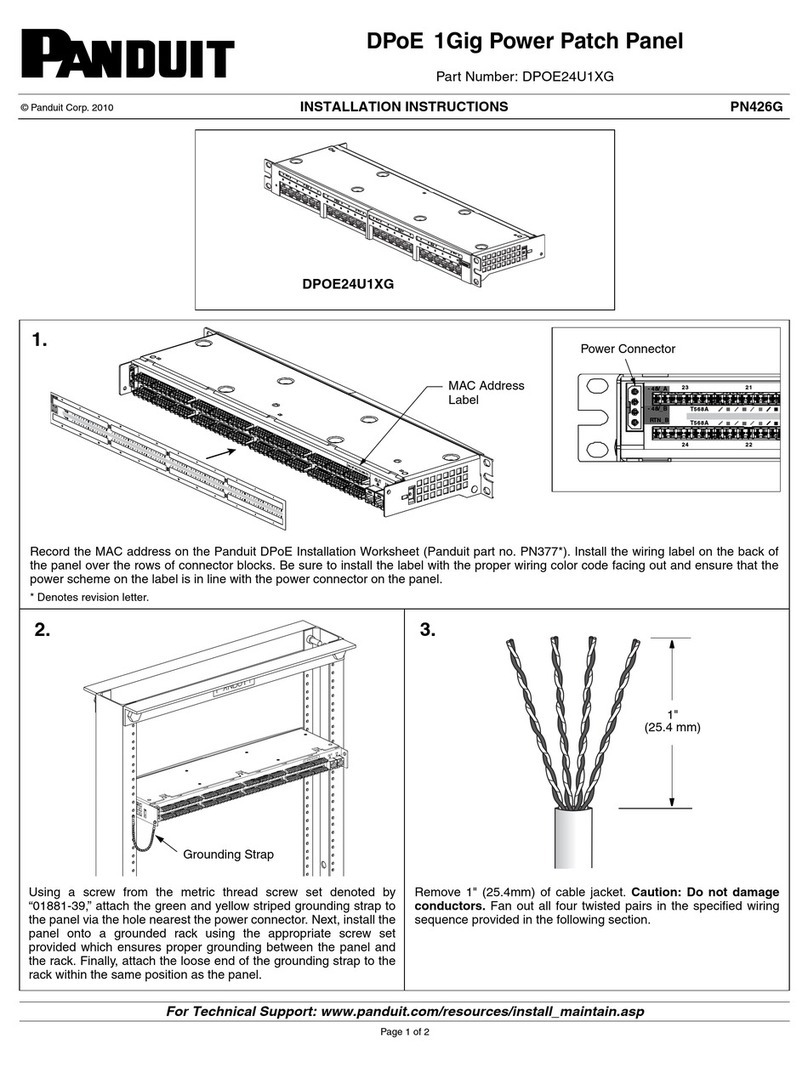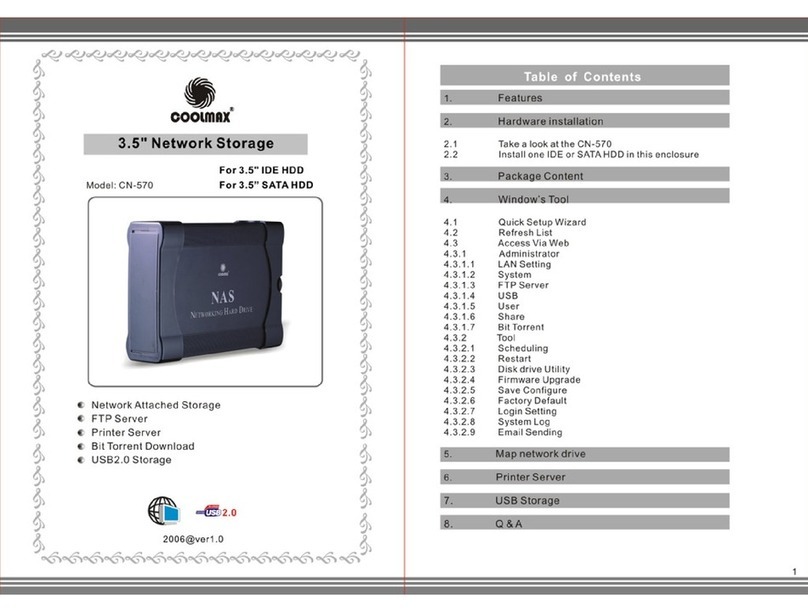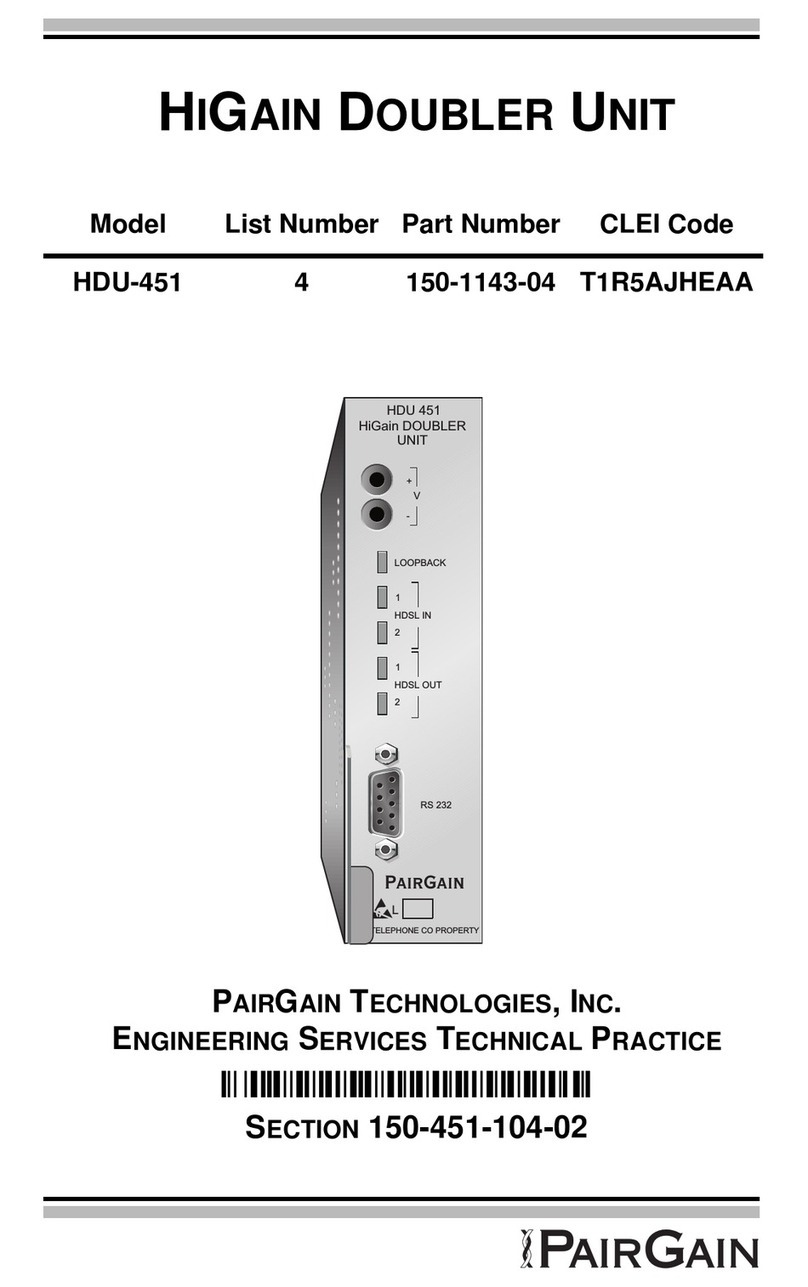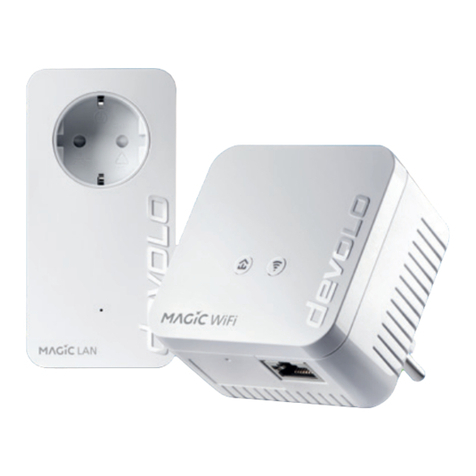Sixnet EL326 User manual

www.sixnet.com
EL326
Industrial Ethernet
Managed Switch
Installation Guide
Revision: 11 June 2013

EL326 Installation Guide Rev 11-Jun-13 Page 2 of 32
This page intentionally left blank.

EL326 Installation Guide Rev 11-Jun-13 Page 3 of 32
Management Guide
Installation Guide
Industrial Ethernet Switch
Layer 3 with 26 Ports:
20 10/100/1000BASE-T Ports
4 Combination 10/100/1000 SFP Ports
2 10GB Expansion Ports
2 high-speed stacking ports

EL326 Installation Guide Rev 11-Jun-13 Page 4 of 32
About This Guide
Purpose
This guide gives specific information on how to properly install and maintain the switch.
Audience
The guide is intended for use by network administrators who are responsible for installing and setting up
network equipment; consequently, it assumes a basic working knowledge of electrical safety and any local,
regulatory or corporate rules for the installation of industrial electrical equipment.
Conventions
The following conventions are used throughout this guide to show information:
Note or Notice: Emphasizes important information or calls your attention to related features or instructions.
Caution, risk of danger: Alerts you to a potential
hazard that could cause loss of data, or damage the
system or equipment. Documentation must be
consulted in all cases where this symbol is marked.
Typical caution symbol.
Warning, risk of electrical shock: Alerts you to a
potential hazard that could cause personal injury.
Typical warning symbol.
Related Publications
The following publication details the software features of the switch, including the Web interface, CLI and
much more:
EL326 Management Guide
Also, as part of the switch’s software, there is an online web-based help that describes all management
related features.
Revision History
First release.
Copyright & Trademarks
Copyright 2012 Sixnet, Inc.. All Rights Reserved.
Note: All information in this document is subject to change without notice.

EL326 Installation Guide Rev 11-Jun-13 Page 5 of 32
Compliance and Safety Information
Installation Warnings
Please read the following safety information carefully before installing or performing any
maintenance on the switch. The safety of any system incorporating this equipment is
the responsibility of the assembler of the system.
Warning: These products should not be used to replace proper safety interlocking. No software-
based device (or any other solid-state device) should ever be designed to be responsible for the
maintenance of consequential equipment or personnel safety. In particular, Sixnet disclaims any
responsibility for damages, either direct or consequential, that result from the use of this equipment
in any application. All power, input and output (I/O) wiring must be in accordance with Class I,
Division 2 wiring methods and/or in accordance with the authority having jurisdiction. Refer to
section 1 for other important installation warnings. This equipment is suitable for use in Class I,
Division 2, Groups A, B, C, D or non-hazardous locations only.
Warning: Installation, maintenance and removal of the switch must be carried out by qualified
personnel only.
Warning: Install the Managed Switches in accordance with local and national electrical codes.
Warning: The unit must be properly grounded to comply with international standards.
Warning: If equipment is used in a manner not specified by the manufacturer, the protection
provided by the equipment may be impaired.
Warning: Do not connect to an AC power supply without an earth ground.
Warning: This product does not contain any user serviceable parts.
Warning: Do not work on equipment during periods of lightning activity.
Warning: Do not connect a telephone line into one of the Ethernet RJ45 connectors.
Warning (explosion hazard): Substitution of components may impair suitability for Class I, Division
2 (Zone 2) areas.
Warning (explosion hazard): When in hazardous locations, disconnect power before servicing
units.
Warning (explosion hazard): Do not disconnect equipment unless power has been switched off or
area is known to be nonhazardous.
Warning (explosion hazard): In hazardous or potentially hazardous locations, do not separate any
part of unit when energized. Use the unit for internal connections only.
Warning (explosion hazard): No hot swapping of modules in Hazardous Locations.

EL326 Installation Guide Rev 11-Jun-13 Page 6 of 32
Fiber Optic Safety
Warning: When using fiber optic ports, never look at the transmit laser, fiber TX port or fiber
cable ends while the switch is powered on. It is highly recommended to keep the rubber fiber
plugs inserted when the fiber port is not being used.
Hi-Pot (Dielectric) Testing
Caution: This device is designed to withstand a high-potential “hi-pot” (dielectric) test
up to 2000 VAC or 2800 VDC (1 minute), or 2400 VAC or 3300 VDC (1 second)
according to IEEE 1613. However, the surge circuitry must be bypassed before
performing this test. See section 8 for details.
Power Markings
Direct Current (DC)
Alternating Current
Protective Conductor Terminal
FCC Statement
This device complies with Part 15 of the FCC Rules. Operation is subject to the following two conditions:
This device may not cause harmful interference.
This device must accept any interference received, including
interference that may cause undesired operation.
Warning: This equipment has been tested and found to comply with the limits for digital device, pursuant
to Part 15 of the FCC Rules. These limits are designed to provide reasonable protection. This equipment
generates, uses and can radiate radio frequency energy and, if not installed and used in accordance with
the instructions, may cause interference to radio communications. However, there is no guarantee that
interference will not occur in a particular installation. If this equipment does cause harmful interference to
radio or television reception, which can be determined by turning the equipment off and on, the user is
encouraged to try to correct the interference by one or more of the following measures:
Reorient or relocate the receiving antenna.
Increase the separation between the equipment and receiver.
Connect the equipment into an outlet on a circuit different from
that to which the receiver is connected.
Consult the dealer or an experienced radio/TV technician for help.
Notice: Shielded interface cable must be used in order to comply with emission limits.
Notice: Changes or modification not expressly approved by the party responsible for compliance could void
the user’s authority to operate the equipment.
Industry Canada Statement
This device complies with the limits of Industry Canada per ICES-003. Operation is subject to the following
two conditions:

EL326 Installation Guide Rev 11-Jun-13 Page 7 of 32
This device may not cause harmful interference, and
This device must accept any interference received, including interference that may cause undesired
operation.
ce dispositif peut ne pas causer l'interférence nocive, et
ce dispositif doit accepter n'importe quelle interférence reçue, y compris l'interférence qui peut
causer l'opération peu désirée.

EL326 Installation Guide Rev 11-Jun-13 Page 8 of 32
Warranty Statement
Sixnet, manufacturer of Sixnet products, warrants to Buyer that products, except software, manufactured by
Sixnet will be free from defects in material and workmanship. Sixnet's obligation under this warranty will be
limited to repairing or replacing, at Sixnet's option, the defective parts within one year of the date of
installation, or within 60 months of the date of shipment from the point of manufacture, whichever is sooner.
Products may be returned by Buyer only after permission has been obtained from Sixnet. Buyer will prepay
all freight charges to return any products to the repair facility designated by Sixnet.
This limited warranty does not cover losses or damages which occur in shipment to or from Buyer or due to
improper installation, maintenance, misuse, neglect or any cause other than ordinary commercial or
industrial applications. In particular, Sixnet makes no warranties whatsoever with respect to implied
warranties of merchantability or fitness for any particular purpose. All such warranties are hereby expressly
disclaimed. No oral or written information or advice given by Sixnet or Sixnet’s representative shall create a
warranty or in any way increase the scope of this warranty.
This limited warranty is in lieu of all other warranties whether oral or written, expressed or implied. Sixnet's
liability shall not exceed the price of the individual units, which are the basis of the claim. In no event shall
Sixnet be liable for any loss of profits, loss of use of facilities or equipment, or other indirect, incidental or
consequential damages.
Note: The EL326 switches have no user serviceable parts. Any unauthorized service will void all
warranties. In the unfortunate event that service is required please contact Sixnet for further instructions.
Getting Support
For local support please contact your regional Sixnet office.
Otherwise, to get product information or contact Sixnet directly:
Latest product info: http://www.sixnet.com
E-mail: mailto: [email protected]
Phone: +1 (518) 877-5173
Fax: +1 (518) 877-8346
Mailing address: Sixnet Technology Park, 331 Ushers Road, Ballston Lake, NY 12019, USA
Products Covered
This manual applies to the following products:
EL326 26-port managed layer 3 industrial Ethernet rack-mount switch

EL326 Installation Guide Rev 11-Jun-13 Page 9 of 32
Contents
Section 1
General Information
Page 9
Section 2
Installation and Mounting
Page 11
Section 3
Thermal Considerations
Page 15
Section 4
Power Wiring
Page 16
Section 5
Communication Wiring
Page 20
Section 6
LED Indicators
Page 24
Section 7
Technical Specifications
Page 26
Section 8
Hi-Pot Testing
Page 28
Section 9
Service Information
Page 30

EL326 Installation Guide Rev 11-Jun-13 Page 10 of 32
Section 1
General Information
Overview
The Sixnet EL326 is a 26 port industrial Ethernet managed switch designed to meet the
extreme requirements of power substations, traffic control, railway and other harsh
environments. It combines the high performance and security of an enterprise-class switch
with rugged packaging and protected circuitry to meet the needs of the most demanding
applications.
This manual will help you install and maintain these industrial Ethernet switches.
Installation of these switches is very easy and they will begin to operate as soon as they are
powered up. Though these are fully managed switches, they will act as unmanaged until
they are configured otherwise. Refer to the separate software manual or management
guide for configuration of the advanced networking functionality and security.
Note: This manual only covers the installation and wiring of these switches. Refer
to the separate Management Guide for details on configuring and using any of the
management functions such as SNMP, RSTP, IGMP, VLANs, security, port
mirroring and much more.
Basic
Operation
Unlike an Ethernet hub that broadcasts all messages out all ports, these industrial Ethernet
switches will intelligently route Ethernet messages only out the appropriate port. The major
benefits of this are increased bandwidth and speed, reduction or elimination of message
collisions, and deterministic performance when tied with real-time systems.
These industrial Ethernet switches support 10BaseT (10 Mbps), 100BaseT (100 Mbps) and
1000BaseT (1000Mbps) on the first 24 ports via standard RJ45 connectors. These ports
will independently auto-sense the speed/duplex and mdi/mdix-crossover allowing you to
use straight or crossed-wired cables. Ports 21-24 are combination ports and also provide
SFP cages that accept industry-standard pluggable SFP transceivers of various types
including multimode, singlemode, long-haul, bidi and more. These pluggable SFP ports
support 100/1000BaseF (100/1000 Mbps) noise-immune fiber connections up to 120km.
General
Specifications
These general specifications apply to these industrial Ethernet switches. Refer to Section 7
for complete technical specifications.
Number of ports
26 Ethernet ports
Ethernet Switch Type
Managed
Ethernet Switch Mode
Store and forward, wire-speed, non-blocking
Ethernet Protocols
All standard IEEE 802.3 protocols supported
Ports 1 through 20
Gigabit RJ45 ports for 10/100/1000 Mbps connections
Ports 21 and 24
Gigabit SFP slots with both RJ45 (10/100/1000) or 100 or 1000
Mbps fiber transceivers
RJ45 Ports Operation
Auto-negotiation, auto-mdi/mdix-crossover and auto-polarity
Fiber Optic Type
Multimode, singlemode, long-haul or special application
Package style
1U 19” rack mount
Cleaning: Equipment can be wiped down with a damp cloth.

EL326 Installation Guide Rev 11-Jun-13 Page 11 of 32
Compliances
These industrial Ethernet Switches meet the following standards plus others:
(some qualifications may be pending –contact Sixnet for the latest information)
Sixnet Inc. is an ISO9001:2008 certified company (FM 65232) since 1996. These devices
are designed, developed and manufactured per an ISO9001 quality management system.
Electrical safety
These devices have been designed to meet the basic safety requirements of the following
standards:
CE per Low Voltage Directive and IEC 61010-1
UL508 (Industrial control equipment), ANSI / ISA12.12.01 (Hazardous Locations)
CSA C22.2 No. 142 and No. 213 (per cUL)
EMC (emissions and immunity)
CE per the EMC directive
IEC 61000-6-2: Immunity in industrial environments
IEC 61000-6-4: Emissions in industrial environments
FCC part 15 and ICES 003. See FCC statement on page 6.
EN 55022 (CISPR22)
WEEE compliance
These devices comply with the WEEE directive. Do not throw away these devices in the
standard trash. Contact Sixnet regarding proper disposal.
RoHS compliance
These devices comply with the RoHS directive and are considered lead and other
hazardous substance free.

EL326 Installation Guide Rev 11-Jun-13 Page 12 of 32
Section 2
Installation and Mounting
Overview
These industrial Ethernet switches are designed to be mounted in an industry standard rack
or directly to any flat surface indoors. Each switch is supplied with a standard set of 19” (EIA)
rack mounting brackets. Optionally, other mounting brackets are available. See the next page
for details on utilizing the mounting brackets.
The above image shows an EL326 in front style arrangement (ports in front and power in the back)
mounted in a typical 19” rack, prior to wiring.
Important Note: When you are choosing your mounting option make sure to allow enough
room to route your Ethernet copper or fiber optic cables. Also, please consult the
specifications for your fiber optic cable to make sure you allow for the proper bend radius.
Important Note: Make sure to read Section 3 regarding thermal
considerations before installing your switch.

EL326 Installation Guide Rev 11-Jun-13 Page 13 of 32
Mounting
Brackets
There are many options for mounting these industrial Ethernet switches. Each switch is
supplied with a standard set of 19” rack mounting brackets. Optionally, mounting brackets for
23”, 24” and ETSI width racks are available. These mounting brackets universally support the
mounting hole spacing per the EIA (1.25”), ETSI (25mm) and WECO (1.00”) standards. Refer
to the mechanical diagram on the next page for details.
There are eight threaded inserts (see red arrows above) on each side of the switch that allow the brackets to be
mounted in numerous positions for the best fit in your rack. The brackets also have extra holes (see blue arrows
above) allowing them to be shifted right or left 1/2 inch. Use the supplied screws to mount the bracket in the desired
position. Plastic screws are also provided to plug the unused holes. See below for possible mounting positions.
In the image above, the brackets are mounted
flush with the front of the switch.
In the image above, the brackets are mounted so
the front of the switch is setback 1/2 inch.
For the most durable mounting you can use two brackets on each side (as shown in the image above). This is ideal
for applications requiring the highest shock and vibration resistance.

EL326 Installation Guide Rev 11-Jun-13 Page 14 of 32
Standard 19” bracket
Part #: EK1-BRCKT-19
(set of 2)
Optional ETSI bracket
Part #: EK1-BRCKT-ETSI
(set of 2)
Optional 23” bracket
Part #: EK1-BRCKT-23
(set of 2)
Optional 23/24” bracket
Part #: EK1-BRCKT-2324
(set of 2)
Optional wall bracket
Part #: EK1-BRCKT-WALL
(set of 2)

EL326 Installation Guide Rev 11-Jun-13 Page 15 of 32
Mechanical Dimensions for the EL326 and Brackets
Note: AutoCAD and other drawings are available on the CD or at:
www.sixnet.com

EL326 Installation Guide Rev 11-Jun-13 Page 16 of 32
Section 3
Thermal Considerations
Overview
The EL326 switches are designed to operate from -35 to +80˚C when they are installed
properly. The switch is cooled via conduction and radiation. There are no fans. Instead there
are various heat-sinks inside the switch to conduct the heat from the components to the heavy-
gauge aluminum case. The heat is then dissipated from the case via radiation to the
surrounding air.
Rack
Mounting
When the switch is rack mounted, for best heat dissipation it is recommended that there be
around 1/2U or more of free air space above and below the switch (as shown below). This
allows the heat to radiate to the air. Any moving air in your rack will improve on the cooling of
the switch.
Note: An air gap is not absolutely necessary but highly recommended when you know that the
switch will experience high heat (> 60˚C) for extended periods of time.
0.75" [19.1mm] above switch
0.75" [19.1mm] below switch
other device
other device
EL326 Rack Mounting Recommendation
Suggestion: If your space is limited and you must choose between an air gap on the bottom
versus an air gap on the top it is better to have the air gap on the top.
BTU / Hour
The power consumption of the switch can be as much as 120 Watts with all ports linked and
active. Based on this, the heat dissipation can be as much as 408 BTU per hour. Please plan
your system accordingly.

EL326 Installation Guide Rev 11-Jun-13 Page 17 of 32
Section 4
Power and Output Wiring
Warning: Please read this section fully before connecting your power input or alarm output!
The unit must be powered down and the power plug removed before any wiring is done to
the power plug. Otherwise, there is a risk of electrical shock if the rules and warnings in this
manual are not properly adhered too.
Power
Overview
The EL326 switches are offered with several power options including dual power supplies
that can keep the switch running when there is a power input failure or internal power
supply failure.
Standard Power Supply Options:
Option A0 = single 100-240 (50/60 Hz) VAC power or 110/250 VDC power –P1 accepts
85-264 VAC or 90 to 300 VDC (min/max)
Option AA = dual 100-240 (50/60 Hz) VAC power or 110-250 VDC power –P1 & P2
accept 85-264 VAC or 90 to 300 VDC (min/max)
Option D0 = single +/-24/48 VDC power inputs –P1 accepts +/-20 to 59 VDC (min/max)
Option DD = dual +/-24/48 VDC power inputs –both P1 & P2 accept +/-20 to 59 VDC
(min/max)
Note:
With the dual options the two power supplies are completely isolated so each input/supply
can be connected to a different voltage as long as it is in the range for that supply.
Special Order Options:
Other power input options may be available. Contact Sixnet for details.
Redundancy
Operation
The AA and DD power supply options offer dual redundant power supplies built into the
switch. This protects your system from both power input failures and internal power supply
failures. Please note that the AA and DD have different default modes of operation as
follows:
AA Operation: The AA option provides dual high voltage power inputs. These inputs are
load shared so each input shares around 50% of the load under normal operating
conditions. If a power input or supply fails then the other one will handle 100% of the load.
DD Operation: The DD option provides dual low voltage power inputs. These inputs
operate in a primary/backup scheme. The P1 input should be connected to the primary
power source and the P2 input to the backup power source (such as a battery). Under
normal operating conditions all the power is drawn from the P1 input and supply. Only if P1
fails is power drawn from the P2 backup input and supply.
Note: These default modes of operations can be changed at the factory. Contact Sixnet for
details.
Caution: Make sure that you know what type of power your switch accepts and make sure
that your input power is within the ranges as defined above. Otherwise, you may damage
your switch by applying the wrong power.

EL326 Installation Guide Rev 11-Jun-13 Page 18 of 32
Safety
Grounding
For the highest electrical safety the EL326 switches are provided with several grounding
points. First, there are two green ground
screws (see images) that attach directly to
the switch case. These screws can be used
to provide a NEBS compliant safety ground.
Please follow all the NEBS grounding rules
and your own local requirements (which are
not documented in this manual) to ensure the
safe operation of the switch. Alternatively, the
power plug has a chassis ground terminal
(#4) that can be used to safety ground the
switch. This terminal is internally tied to the
switch case. In addition, there is a ground
terminal for each power input. Use these to
terminate the ground wire for each of your
power inputs.
Note: The 2 Safety Guard Screws are designed to
be used with Ring Lug Terminals. Do not wrap ground wire around either of the safety ground
screws.
Warning: It is recommended that you make your safety ground connections first before
connecting any power to the switch. Make sure that all power is off before making any
power or ground connections to the switch.
Two #10-32 Screws
for NEBS Compliant
Safety Grounding
0.63"
[15.88mm]
Ground lug not included

EL326 Installation Guide Rev 11-Jun-13 Page 19 of 32
Power
Labeling
The power headers and/or plugs will be labeled to guide you in properly connecting your
power. Make sure to reference this labeling when wiring your switch to make sure you are
connecting the appropriate power to the correct terminals. If your switch does not have dual
power inputs then do not connect anything to the terminals labeled Power 2. The power
header/plug connectors are rated for 300V, 10A and 105C.
Power Header and Plug Labeling
Power Plug Installed
Power Wiring for
EL326 Switches
P2P2P1
+/L
P1
Pluggable Screw Block
1 2 3 4 5 6 7 8 9 10
Power
Input 1
Power
Input 2
Chassis
GND
-/N -/N +/L
Accepts
14-24 AWG
Wire
AC Power
Systems
For AC powered systems the terminals will be labeled as “+/L” for Line (aka Hot), “-/N” for
Neutral and the chassis ground symbol for ground. Connect your AC power input as
correspondingly. Typically the Line (Hot) lead is colored black or brown, the Neutral lead is
colored white or blue and the ground is green or green/yellow.
Positive (+)
DC Power
Systems
For positive power systems (such as +24 VDC) put the positive lead on the terminal
marked “+/L” and the return (or ground) lead on the terminal marked “-/N“. If there is a
chassis, earth or safety ground lead then put it on the associated terminal marked with the
chassis ground symbol.
Negative (-)
DC Power
Systems
Both the power option ”A” and “D” support negative power systems. If your power is
negative (such as -48 VDC) then you must put the most positive lead on the “+/L” terminal.
Always use a voltmeter to verify which lead is more positive. Then put the more negative
lead on the “-/N” terminal. If there is a chassis, earth or safety ground lead then put it on the
associated terminal marked with the chassis ground symbol.
Reverse Polarity
Protection
The “D” option power inputs are reverse polarity protected. This means that if you swap the
+ and –leads then the switch will not be damaged. However, the switch will not operate
when wired this way.

EL326 Installation Guide Rev 11-Jun-13 Page 20 of 32
“OK” Alarm
Output
The switches have an “OK” alarm output that can be tied to a PLC input, an alarm indicator
(visible or audible) or other device to indicate when there is an alarm condition (such as the
loss of a power input). The alarm output is a Form C relay with a normally open (NO),
normally closed (NC) and common (C) screw terminal. Apply an appropriate power source
to the common (C) terminal.
Alarm Output Ratings:
Maximum voltage = 250 VAC or 30 VDC
Maximum current = 2 A @ 30 VDC or 250 VAC
Minimum load = 10 mVDC, 10 µA
The relay will operate as follows:
Condition
NO Contact
NC Contact
No power to switch
Closed
(shorted to common)
Open
Switch powered with no alarms
Open
Closed
(shorted to common)
Switch powered with an alarm
Closed
(shorted to common)
Open
Alarm Wiring for
EL326 Switches
NCCNO
Pluggable Screw Block
1 2 3 4 5 6 7 8 9 10
Accepts
14-24 AWG
Wire
Alarm
Relay
Wire Gauge &
Screw Torque
The screw terminals are removable and secured by two screws. They will accept wire in the
range of 24 to 14 AWG. When tightening the screws be careful to tighten to a maximum
torque of 4.5 in/lb (0.51 Nm). We recommend a minimum of 18 AWG and 105C rated
wiring for the input power and relay connections. 600V rated wire is preferred (300V
minimum).
For permanently connected equipment per EN/IEC 61010-1.
1. A switch or circuit-breaker must be included in the installation.
2. The switch or circuit-breaker must be suitably located and easily reached.
3. The switch or circuit-breaker must be marked as the disconnecting device for the
equipment.
Other manuals for EL326
3
Table of contents
Popular Network Hardware manuals by other brands
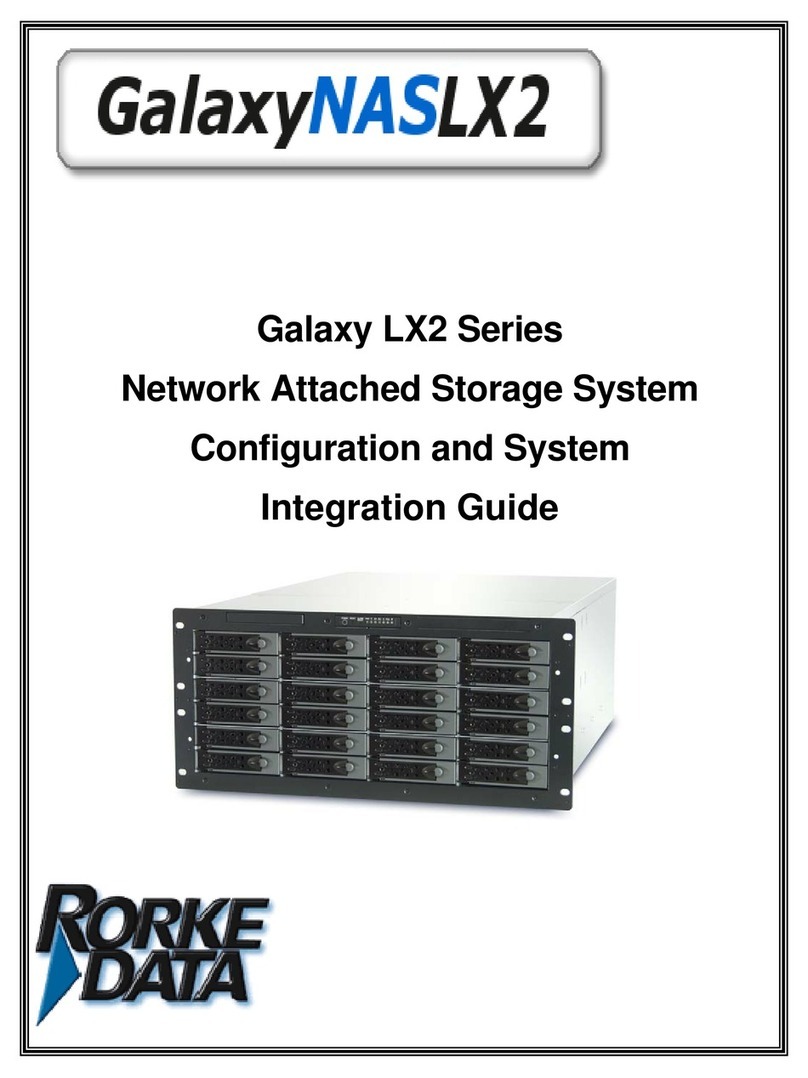
Rorke Data
Rorke Data GalaxyNASLX2 Configuration and system integration guide
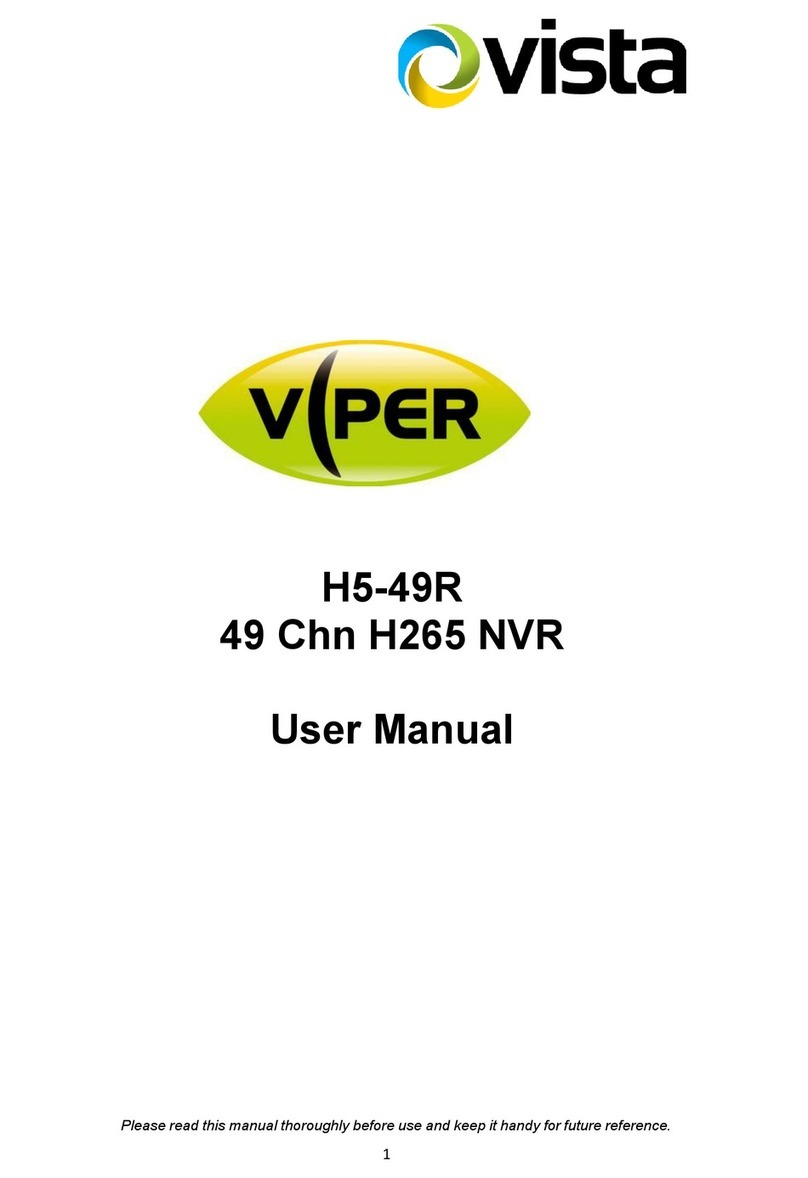
Vista
Vista Viper H5-49R user manual
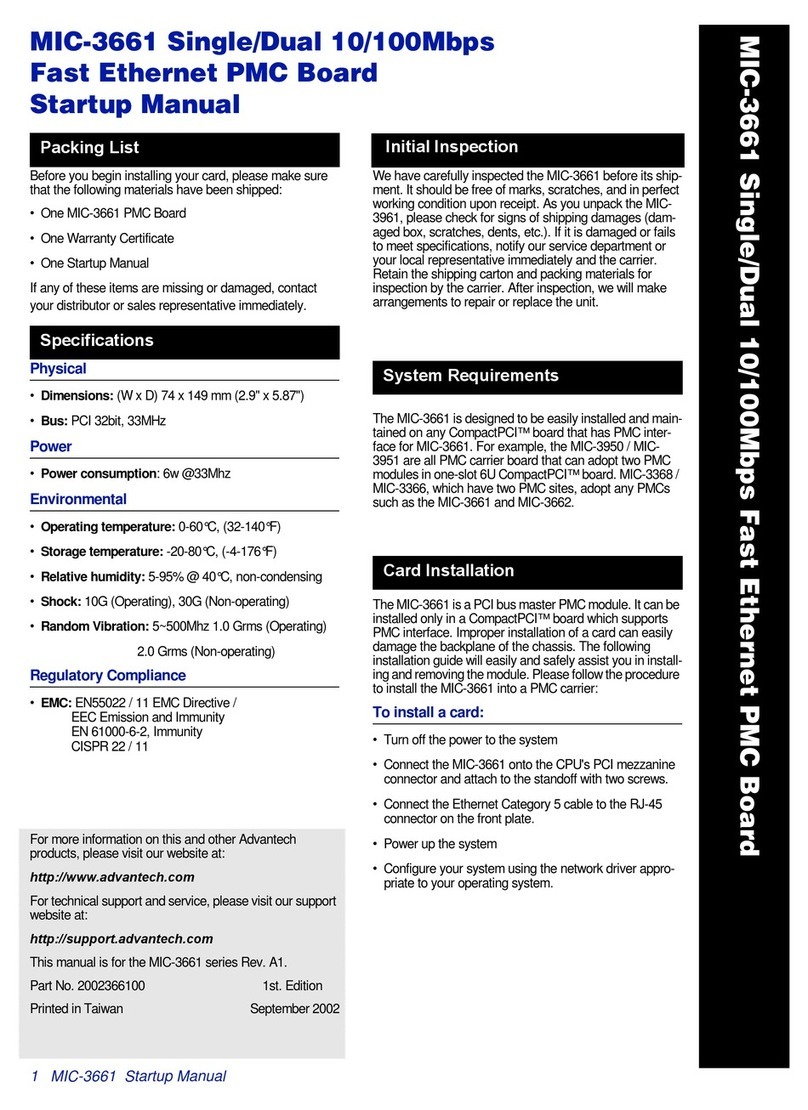
Advantech
Advantech MIC-3661 Startup manual
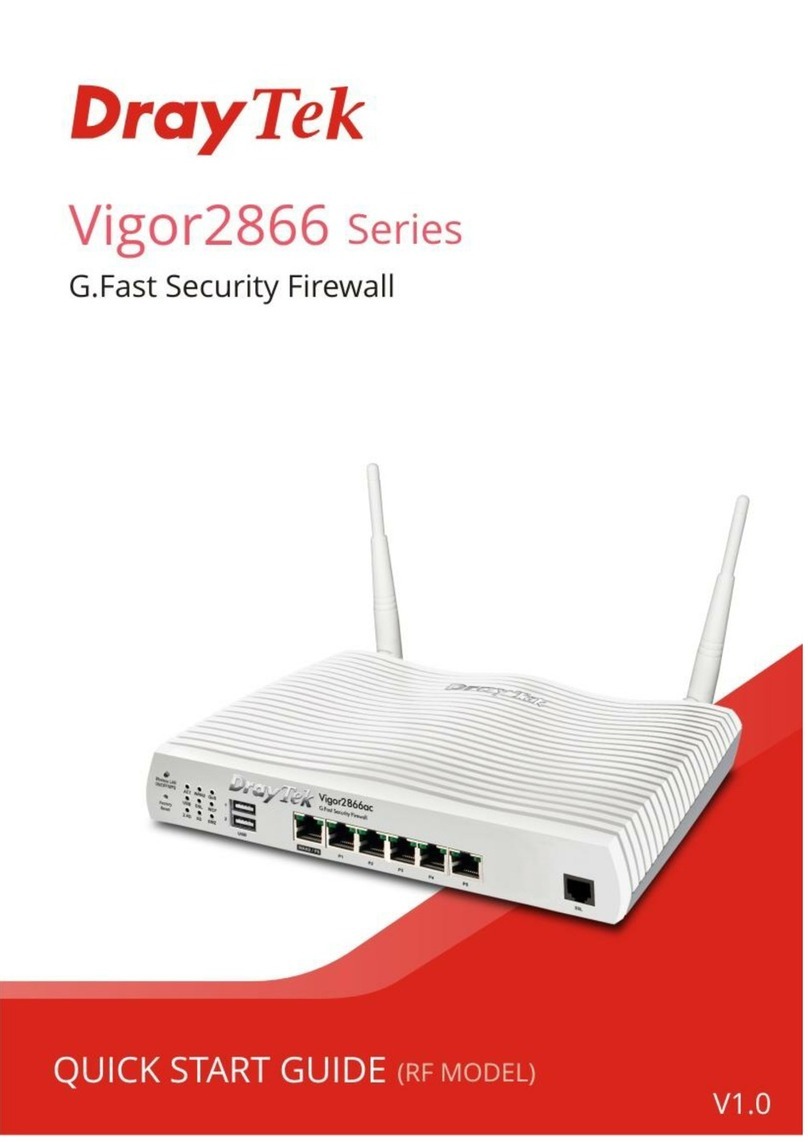
Draytek
Draytek Vigor2866ac quick start guide

Vacron
Vacron 16CH NVR user manual

Mitsubishi Electric
Mitsubishi Electric PAC-SF46EPA-G installation manual
